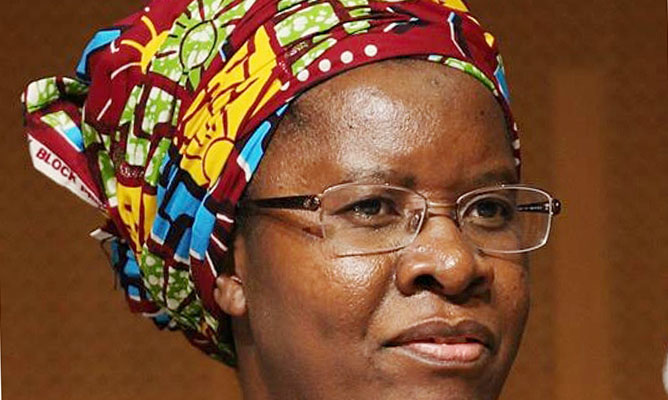
ON Tuesday Zimbabwe joined the rest of the world in commemorating the Day of the African Child. June 16 has been celebrated every year since 1991, when it was set by the Organisation of African Unity, now the African Union.
BY NORMAN MUVAVARIRWA
The day honours those who participated in the Soweto Uprising in 1976, when a protest by schoolchildren in South Africa against the apartheid-inspired education system resulted in the public killing of unarmed young protesters by the police.
It also raises awareness on the need for improvement of the education available to the African child.
The Day of the African Child (2015) was commemorated simultaneously with the 25th anniversary of the African Charter on the Rights and Welfare of the Child Charter under the theme, “25 Years after the Adoption of the African Children’s Charter: Accelerating our Collective Efforts to End Child Marriage in Africa.”
Zimbabwe has one of the highest child marriages rates in the world.
According to Unicef’s the State of the World’s Report (2015), the prevalence of child marriage indicates that Mashonaland Central leads with 50%.
In second place is Mashonaland West at 42%, Masvingo (39%), Mashonaland East (36%), Midlands (31%), Manicaland (30%), Matabeleland North (27%), Harare (19%), and Matabeleland South (18%), while Bulawayo has the least prevalence rate of about 10%.
- Chamisa under fire over US$120K donation
- Mavhunga puts DeMbare into Chibuku quarterfinals
- Pension funds bet on Cabora Bassa oilfields
- Councils defy govt fire tender directive
Keep Reading
Child marriage remains a serious problem not only in Zimbabwe but the world over. The trend however largely remains widespread in developing countries.
Current statistics on early child marriages reveal that each year 14 million girls are married off young while 39 000 girls are married off on a daily basis globally.
Child marriage violates the girl child’s basic human rights, depriving them of their right to an education.

The Convention on the Rights of the Child (CRC,1989) clearly defines a child as a person below the age of 18, while the African Charter on the Rights and the Welfare of the Child (ACRWC, 1990) prohibits “the betrothal of girls and boys” and calls for appropriate measures to eliminate the practice.
Section 78 of the Constitution of Zimbabwe amendment (No.20) Act of 2013 prescribes the minimum age of marriage as 18 years. The section further stipulates that no person may be compelled to enter into marriage against their will and that “children are not pledged in marriages”.
However, marriage laws such as the Marriage Act and the Customary Marriages Act are still to be aligned with the constitution.
Speaking on the sidelines of an international conference in Morocco in May this year, Nyaradzayi Gumbonzvanda, the African Goodwill ambassador, said child marriage inflicted life-long trauma on many girls and far more must be done to address its psychosocial impact.
“With child marriage we are sanctioning rape, we are sanctioning abduction, we are sanctioning a modern form of slavery, it’s trafficking, it’s forced labour,” said Gumbonzvanda.
“It’s a huge bundle of violations, and the moment we just call it ‘marriage’, it is like we are giving it a blessing and acceptability.”
Zimbabwe Women Lawyers Association has issued a statement imploring the government arms — the executive, legislature and the judiciary — to respect, protect, promote and fulfil the rights of children, especially for girls to be protected from sexual exploitation by taking measures to eradicate formal and informal child marriages.
The UN April 2014 annual report of the High Commissioner for Human Rights on preventing and eliminating child, early and forced marriage says the current legislation in 147 countries contains exceptions permitting the marriage of children below the age of 18 even where legislation is in line with international statutes.
“In many communities, marriage is often perceived as a way to ensure the economic subsistence of girls and women with no autonomous access to productive resources and living in situations of extreme poverty,” reads part of the report.
Angela Machonesa, communications manager at Plan International (Zimbabwe), said that there is desire by many governments, including Zimbabwe, civil society, traditional leadership and private sector enterprises to put more targeted financial and technical resources towards prevention and mitigation.
“Research continues to show that the prevalence rate of child marriage is highest among girls with little or no formal education, and among households with the lowest income levels. Equally, the longer a girl stays in school, the less likely she is to be married before 18 and to have children during her teenage years. Schools therefore create protective environments against child marriages,” she said.
Education is one of the most powerful tools to delay the age at which girls marry. When a girl in the developing world receives seven or more years of education, she marries on average four years later. Improving access to quality schooling for girls, including secondary education, will be a crucial part of efforts to end child marriage, according to Girls Not Brides, a global partnership of more than 450 civil society organisations from over 70 countries working to curtail child marriage.











